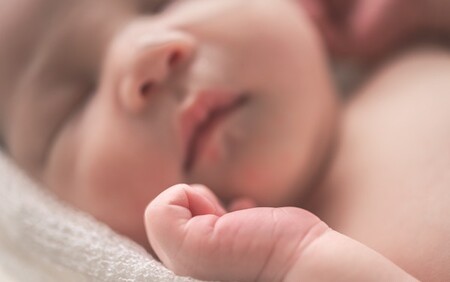What Is Endometriosis & How Does It Affect Fertility?
1 in 10 UK women suffer from endometriosis, however the condition remains relatively unknown and diagnosis takes an average of 7.5 years in the UK.
Endometriosis can have a devastating effect on a woman’s quality of life due to its very painful symptoms and it being the biggest cause of infertility in women.
What is endometriosis?
Endometriosis is a condition where cells like those in the lining of your womb are found elsewhere in your body. Each month these cells react to your menstrual cycle and bleed. However, this blood has no way of escaping and can cause inflammation, pain, and the formation of scar tissue, known as adhesions.
What are the symptoms of endometriosis?
Some women with endometriosis have no noticeable symptoms but for others it can significantly impact their life.
Symptoms can include:
- Pain in your lower stomach or back, during or after sex
- Period pain
- Heavy or irregular periods
- Fatigue and lack of energy
- Feeling sick, e.g. constipation or diarrhoea
- Blood in your urine during your period
- Problems with your sex life and your relationship
- An inability to conceive
- Difficulty doing normal activities
- Depression
Does endometriosis affect a woman’s fertility?
Endometriosis is a common gynaecological problem. It can affect a woman’s fertility but it does not necessarily cause infertility. As the severity of endometriosis increases, the chance of natural conception decreases.
The chance of conceiving if you have mild endometriosis is not very different to a woman who does not have it. If you have moderate or severe endometriosis, you will have more scar tissue and this can trap your egg and prevent it from passing down your Fallopian tube. However, even with severe endometriosis, natural conception is possible.
How is endometriosis diagnosed?
A laparoscopy is the most informative diagnostic test for endometriosis. It allows your pelvis to be carefully inspected and a classification score of endometriosis severity can be given that helps predict your chances of becoming pregnant naturally.
What are the treatment options for endometriosis?
There is no definite cure for endometriosis but treatment can help ease the symptoms.
Endometriosis treatment is typically based on your symptoms and whether you are trying for a baby.
Treatment options available to women with endometriosis are:
Pain relief - over-the-counter anti-inflammatory medications may help reduce your pain.
Hormone treatment – limits or stops oestrogen production in your body that encourages endometriosis tissue to grow and shed. Hormone treatment treats pain but has no effect on scar tissue, does not improve your fertility, and is a contraceptive.
Surgery – most commonly performed by laparoscopy to remove or destroy endometriosis tissue. It can help relieve endometriosis symptoms and improve your fertility if you have minimal or mild endometriosis.
What fertility treatment options are there for endometriosis sufferers?
The best type of fertility treatment will depend on a number of factors, including:
- The severity of your endometriosis
- Your age
- Your egg reserve
- How long you and your partner have been trying to conceive
- If you have conceived in the past
- If you have any other fertility concerns such as blocked tubes or sperm problems
Here at Complete Fertility Centre we offer a range of fertility treatments and individual treatment protocols for our patients with endometriosis depending on their needs, including:
Ovulation induction (OI) – can help to regulate irregular periods if you have minimal or mild endometriosis, by stimulating your ovaries to release an egg each month.
IUI (Intrauterine insemination) – for women with healthy fallopian tubes, who ovulate regularly, and have minimal or mild endometriosis. Prepared partner or donor sperm is inserted into your womb through the cervix when your eggs are released.
IVF (in vitro fertilisation) - for women with damaged or blocked fallopian tubes, who have moderate or severe endometriosis, or who have failed to conceive by IUI. Eggs and partner or donor sperm are fertilised in a laboratory dish to form an embryo, which is then transferred to your womb.
Your experienced fertility consultant will discuss your fertility treatment options with you in detail and answer any of your questions. Book an appointment.
What to do if you are struggling to conceive or you have endometriosis and want to have a baby?
Some women first find out they have endometriosis when they have been trying for a baby without success. Others have endometriosis symptoms and have been diagnosed previously.
If you have unexplained infertility associated with painful periods or you have been trying for a baby without success for a year, you should speak to your GP or fertility specialist to find out if endometriosis is the cause.
You can arrange to see one of our expert fertility consultants to find out the best way forward for you to have a baby.

